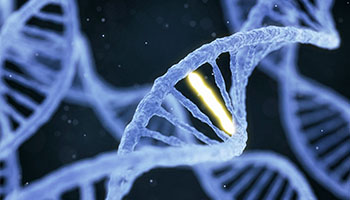HOW CAN WE HELP YOU? Call 1-800-TRY-CHOP
In This Section

Dr. Romberg investigates the regulatory mechanisms enabling our immune systems to fight infections without injuring ourselves. He is particularly interested in the immune system of patients with primary immunodeficiency who are susceptible to both life-threatening infections and autoimmune diseases. Greater insights into these rare diseases may enable rationale development of targeted therapies for more common diseases with an immunologic basis.
Bio
Dr. Romberg investigates the regulatory mechanisms that enable our immune systems to vigorously attack infectious pathogens but not our own bodies. Particular topics of interest in Dr. Romberg's lab include the role of T regulatory cells in B cell tolerance, T follicular helper cell dysfunction in common variable immune deficiency-related autoimmune disease, and the role of novel genes and pathways in immunity.
Of particular interest to Dr. Romberg is the immune system of patients with primary immunological diseases (PID) who are susceptible to both life-threatening infections and to the development of autoimmune diseases. Greater insights into the pathology of these rare diseases will enable the rationale development of targeted therapies for PIDs and for more common diseases that have an immunologic basis.
In addition to basic scientific work, Dr. Romberg has discovered or has contributed to the discovery of several inherited diseases of the immune system and identified personalized therapies for affected patients. Such disorders include:
- PU.1-mutated agammaglobulinemia (PU.MA)
- CD40LG duplication associated autoimmune disease (40DAD)
- Autoinflammation with infantile enterocolitis (AIFEC)
Education and Training
BS, University of Michigan (Botany), 1999
MD, Pennsylvania State College of Medicine, 2004
Fellowship, Yale University School of Medicine (Allergy and Clinical Immunology), 2011
Pediatric Residency and Chief Residency, New York University School of Medicine, 2008
Titles and Academic Titles
Investigator
Jeffrey Modell Endowed Chair in Pediatric Immunology Research
Attending Physician
Assistant Professor of Pediatrics
Professional Memberships
American Academy of Allergy, Asthma and Immunology, 2008-
Clinical Immunology Society, 2009-
University of Pennsylvania Institute for Immunology, 2015-
Professional Awards
Clinical Immunology Society/Talecris Primary Immune Deficiency Fellowship Award, 2011
Scholar of the NIH Child Health Research Center, 2012-2014
Timber Spears Endowment for Immunodeficiency Research Award Recipient, 2014-2015
Yale Center for Clinical Investigation Scholar Award, 2014-2015
Lady Barbara Colyton Prize for Autoimmune Research, 2021
Publication Highlights
